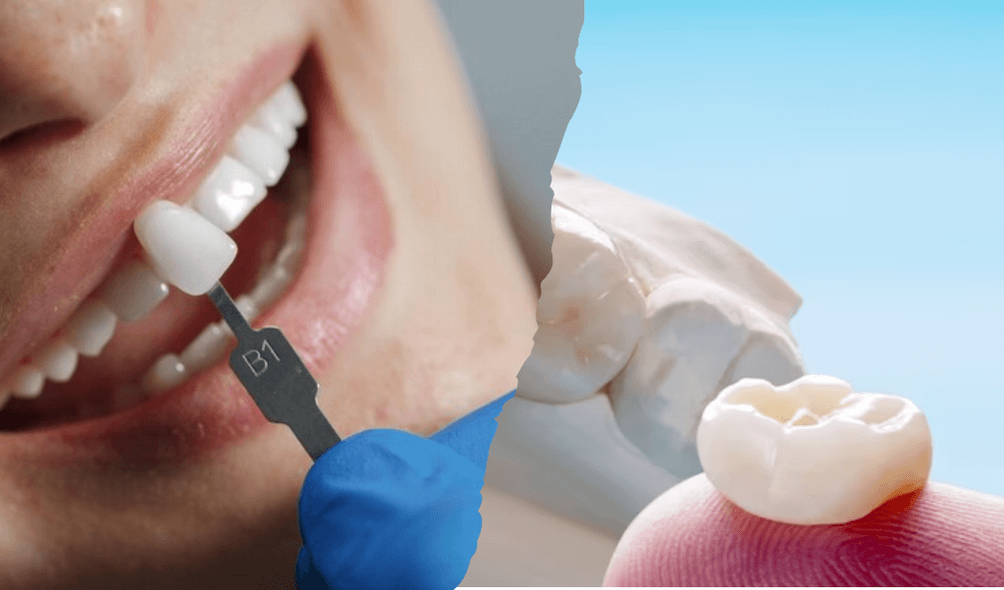What are the Differences Between a Dental Crown and veneers?
Dental crowns and veneers are two distinct dental treatments that can help improve the appearance and function of your teeth. While they share some similarities, they serve different purposes and are used in different situations. Let’s explore the details and understand the differences between these two dental interventions.
Understanding Dental Crowns & Bridges
Dental crowns in Dallas are tooth-shaped caps that are placed over a damaged tooth. They encase the entire visible portion of the tooth, providing protection and restoring its shape, size, strength, and appearance. Crowns are commonly used to strengthen a weak tooth, restore a broken tooth, support a tooth with a large filling, or cover a dental implant. They can be made from various materials, including porcelain, metal, or a combination of both, depending on the specific needs of the patient.
Exploring Dental Veneers
Veneers, on the other hand, are thin shells that are custom-made to cover the front surface of the teeth. They are typically crafted from porcelain or resin composite materials and are used to improve the appearance of teeth that are discolored, stained, worn down, chipped, or misaligned. Dental veneers in Dallas are known for their ability to provide a natural and appealing look, enhancing the overall aesthetics of a person’s smile.
Distinguishing Factors
When considering the differences between crowns and veneers, it’s important to note that their applications and functions vary significantly. Dental crowns are primarily utilized for restorative purposes, such as strengthening and protecting a damaged tooth, while veneers are primarily used for cosmetic enhancements, improving the overall appearance of the teeth.
The Application Process
The process of getting a dental crown typically involves reshaping the tooth to make room for the crown, followed by taking impressions and placing a temporary crown while the permanent one is being fabricated. Once the permanent crown is ready, it is then cemented into place by the dentist.
Veneers, on the other hand, require minimal tooth preparation, involving the removal of a small amount of enamel from the front surface of the tooth. After taking impressions, the veneers are custom-made and bonded to the teeth using a special adhesive, resulting in a transformed and rejuvenated smile.
Longevity and Maintenance
With proper care and maintenance, both dental crowns and veneers can last for many years. Crowns, being more robust and durable, can withstand the forces of biting and chewing more effectively, making them a suitable option for teeth that require significant restoration. Veneers, while not as strong as crowns, can still provide long-lasting results with regular oral hygiene practices and routine dental check-ups.
Choosing the Right Option
The decision between a dental crown and a veneer depends on various factors, including the condition of the tooth, the desired outcome, and the recommendation of the dentist. For teeth that require substantial restoration or structural support, a dental crown may be the most suitable choice. Conversely, for those looking to improve the appearance of their smile or address minor cosmetic concerns, veneers can offer an effective and aesthetically pleasing solution.
Understanding the differences between dental crowns and veneers is essential in making an informed decision about the most suitable treatment for your dental needs. Whether you require functional restoration or aesthetic enhancement, both dental crowns and veneers serve as valuable tools in preserving and enhancing the health and beauty of your smile. By scheduling an appointment with our dentist in The Colony and discussing your specific goals and concerns, you can determine the best option to achieve a confident and radiant smile that you can proudly display.





 |
|